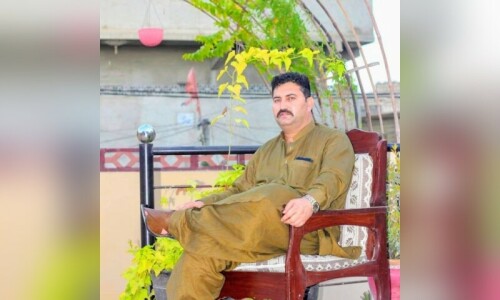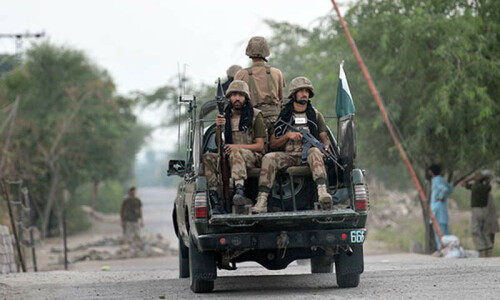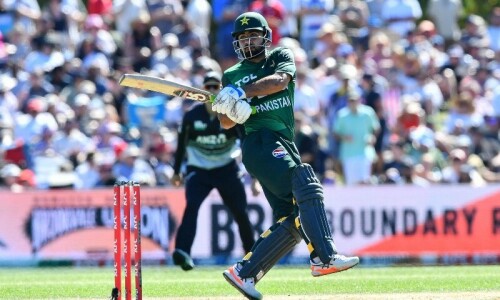MITHI: Sufi folk singer Sadiq Fakeer breathed his last on Thursday evening after succumbing to fatal injuries following a car crash in Saudi Arabia.
The folk singer, who might not be terribly well-known in mainstream circles, was nonetheless a notable fixture on the folk music scene.
Speaking to Dawn.com, poet Dr. Aakash Ansari, whose poems were also sung by Sadiq, said that he was deeply shocked about his untimely demise couldn't find words to pay tribute to the singer.
Sadiq Fakeer was born on March 20, 1964 to Faiz Mohammad Manganhaar in Mithi town in Sindh. Unlike most people from his community his father was a government employee who worked as a patwari in the revenue department.
According to Sadiq’s close friend and writer-poet Bharo Mal Amrani, Sadiq was a born singer. He studied at a local government school and simultaneously learned music from his maternal uncle, Mohammad Hussain Maganhaar, who was also a musician.
Sadiq sang at school functions and later at weddings in Thar and other parts of Sind. He was then introduced to Radio Pakistan Hyderabad, in 1986 by Mr Inyat Baloch and to Pakistan Television by the literary icon Shamsher ul Hyder in 1988.
Following his work at Radio Pakistan and PTV, Sadiq started to compose and sing the famous kalaam of Sindhi Sufi poets like Shah Abdul Latif Bhittai, Sachal Sarmast, Shaikh Ayaz, Dr. Akash Ansari, Ustaad Bukhari among others.
Sadiq Fakeer was not only a singer but also taught at Mithi Government High School. He had a Masters degree in Sindhi literature from Sindh University. He was also awarded many accolades like the Shah Abdul Latif Bhittai award, Sachal Sarmast Award, and Mai Bhagi award which is in the honour of the legendary Thari singer.
He had also performed internationally in Dubai, India, Singapore, US, England, Canada and Saudi Arabia and got unprecedented appreciation even from those who couldn't not understand his language. The singer could sing in Sindhi, Urdu, Seraiki, Dhatki, Marvarri and other languages.
According to broadcaster Naseer Mirza, who spoke to Dawn.com, the singer's death means an irreplaceable loss to music and the voice of Thar. Many of his contemporaries like Jami Chadio, Ayub Khoso, Ayaz Latif Palijo, Partab Shivani also expressed regrets over his death.
Sadiq was in Saudi Arabia to perform Umra, and was on his way to Makkah from Madina when he met with the fatal accident. He was accompanied by his family, including his wife, Shamim, daughter Uzma and three sons Rahat Ali, Raza Ali and Nizakat Ali, who also suffered serious injuries.
Business centres and shops in Mithi remained closed on Friday to mourn his death. People from various parts of Sindh arrived at Sadiq’s house to offer their condolences. It is as yet unclear whether his burial will take place in Mithi or Saudi Arabia.
His sudden death has saddened countless fans and music lovers from Pakistan, India and across the world where he performed and enchanted the audience with his soulful voice.














































